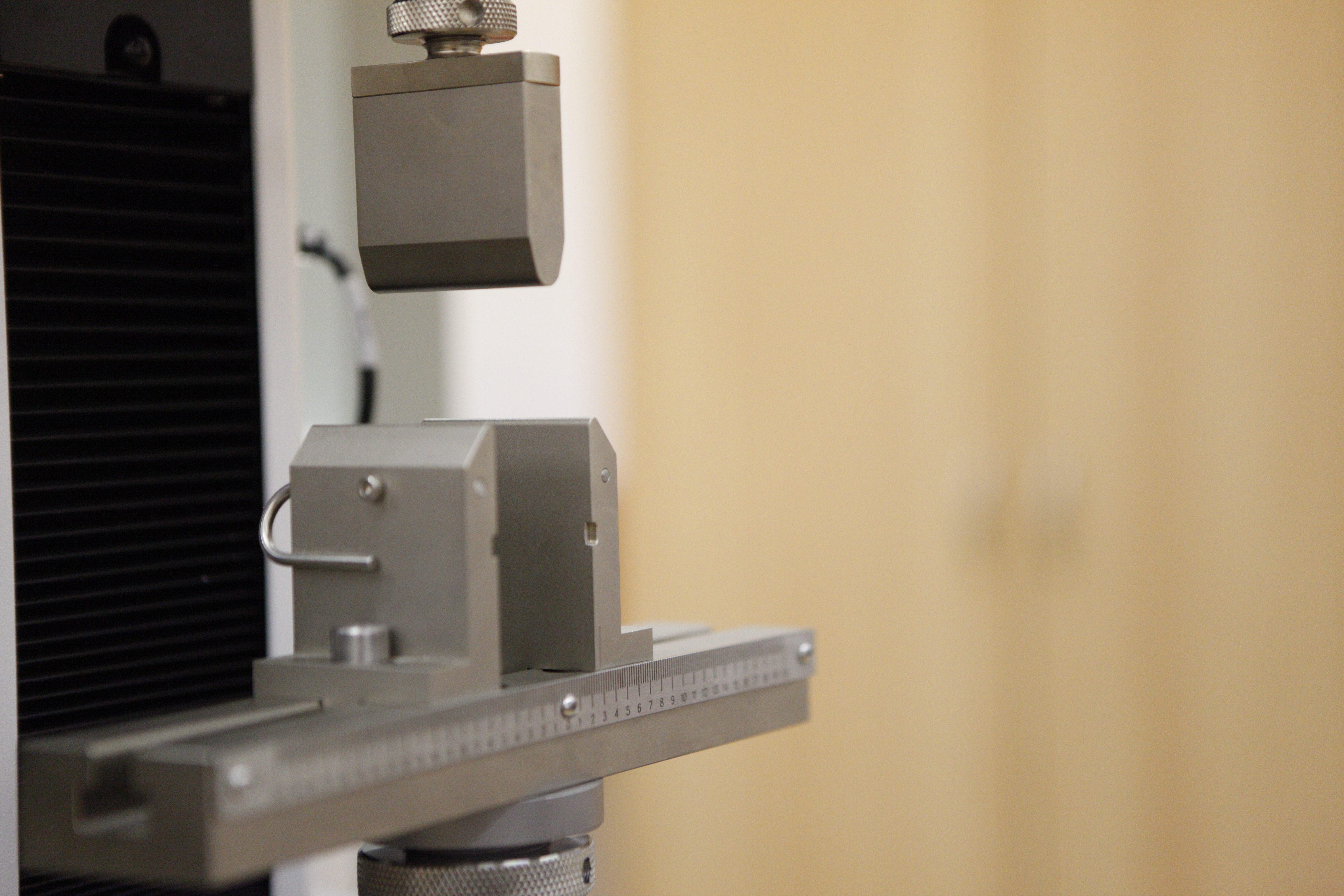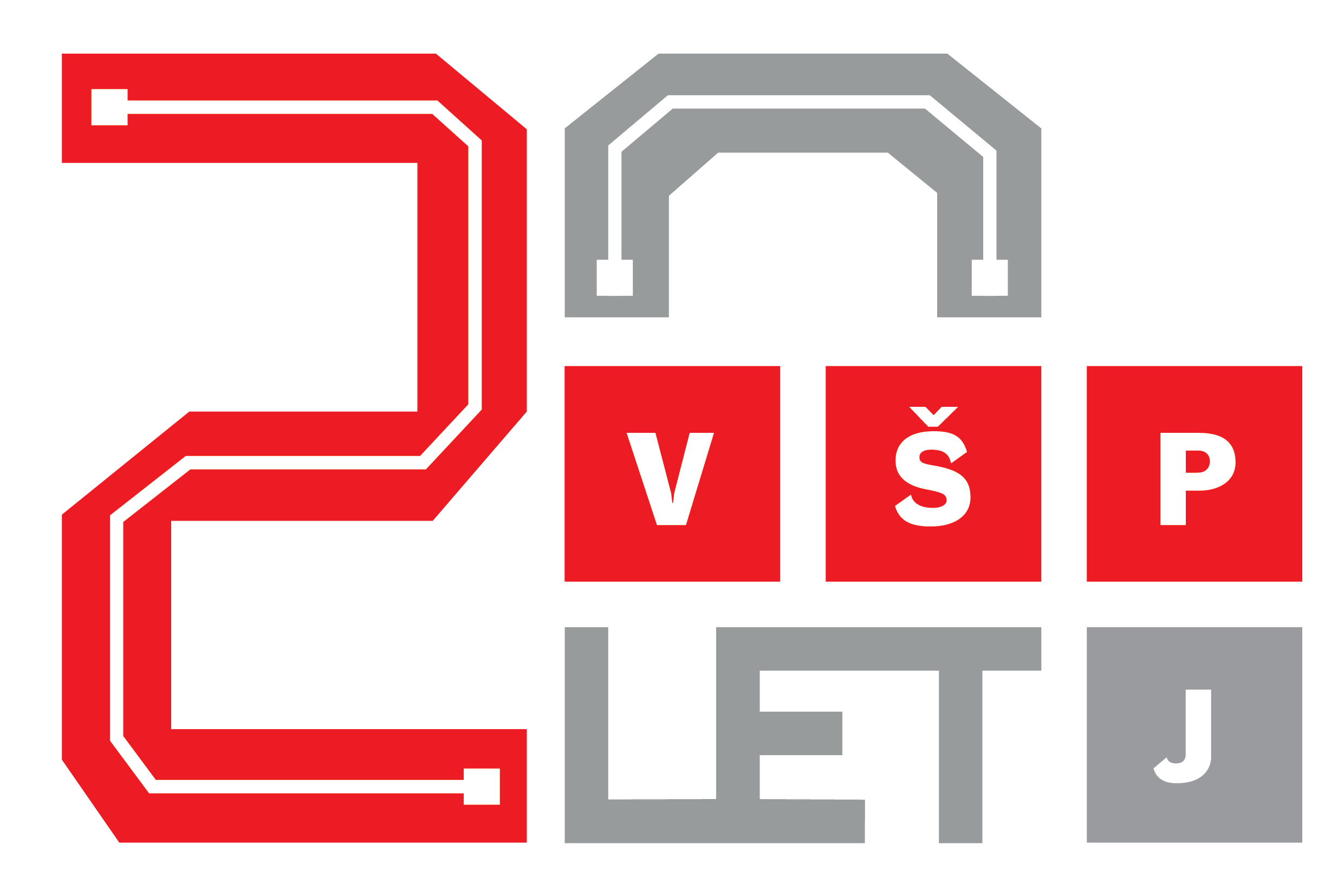Laboratories of the Department of Technical Studies
The Department of Technical Studies has the following specialist laboratories:
CP Factory (Industry 4.0 Laboratory)
Industry 4.0 Laboratory is a new modern workplace for teaching subjects focused on industrial automation, robotics and Industry 4.0 technologies. The laboratory is equipped with the CP Factory teaching production line from FESTO, which allows demonstrating modern principles and technologies for production control, logistics and distribution of production resources. Students can deal with both lower level control (Simatic PLC systems, pneumatic systems) and higher level control and production planning using MES and SCADA systems. The laboratory is also equipped with several Mitsubishi 6-axis robots and Robotino mobile robots. Students can solve not only purely robotic problems (motion, stability, etc.), but also problems in the field of artificial intelligence, such as robot orientation in unknown space or machine vision.
Experimental Measurement Laboratory
The laboratory is focused on the realization of basic experimental measurements of mechanical properties of materials and structural parts. The laboratory is equipped with Instron 3345V universal testing system and certified measuring instruments. The laboratory can perform uniaxial tensile and compression tests, three-point or four-point bending tests. The lab also includes two 3D printers using FDM printing technology. In 2018, the laboratory was expanded within the framework of the ERDF OP VVV project to include an electro-pulse testing facility for dynamic uniaxial, torsion and bending tests, a microscope and a complete production unit implementing Industry 4.0 standards. More HERE.

Electrical Engineering and Computer Science Laboratory (EIT Laboratory)
A specialized classroom where students practice installing and configuring operating systems, implement various computer network topologies and address security issues, install client-server solutions, and learn the basics of virtualization.
Laboratory AMT (Automation and Microprocessor Technology Laboratory)
Specialized classroom equipped with PC and measuring instruments communicating with the computer. Students learn the basics of electrical engineering and digital signal processing. The laboratory is equipped with state-of-the-art measurement equipment from Keysight (formerly Agilent), a National Instruments COMPACT TRIO measurement system and a power supply and linear power amplifier for magnetic measurements. Keysight instruments include power supplies (2 units), 6.5 digit multimeters (2 units), a 300 MHz four channel oscilloscope and a digital function generator.
PRS Laboratory (Computer Control Systems Laboratory)
The laboratory is equipped with various types of industrial automation and industrial computers for teaching programming in the field of process control. The basis is industrial automata or industrial computers (PLC or IPC) from various suppliers such as WAGO, Siemens, MITSUBISHI ELECTRIC, Rockwell, BECKHOFF, Moravian Instruments and others. There are also several functional models of real systems, including dedicated control systems (control of liquid levels in a tank system, ball on inclined plane, control of positionable synchronous motors and a model of a train junction).
ROB (Robotics Laboratory)
Laboratory designed primarily for teaching the upcoming Robotics course and student projects in the field of robotics.
Signal Processing and Multimedia Lab
This is a highly specialized, state-of-the-art laboratory for the fields of signal processing and multimedia. It consists of five rooms (recording studio, director's office, equipment storage, soundproof room and computer room V9 equipped with specialized software for signal, audio and video processing - see above) and a professional HD video camera that is used for student projects, including accessories (tripod, wireless microphones). The measuring torso can be used, for example, to measure the frequency range of headphones when comparing a reference and a measured signal. For this purpose the laboratory has sensitive microphones, amplifiers or spectrum analyzers. The measured signal is transferred to the sound stage, where the signal is transmitted to the computer via the mixing console and further processed.
The lab is also used for recording the Polytechnicast podcast.
The technical equipment of the laboratory was purchased with the financial support of the project M00176 Electronic-Biomedical Cooperation.
Manufacturing Processes Lab
Prototype sample complex equipped workshop for the implementation of milling, turning, manual locksmithing and assembly work with the possibility of preparing semi-finished products, tool grinding, measuring and inspection of products. The laboratory serves to support the teaching of technology-oriented subjects within the fields of Applied Technology for Industrial Practice and Applied Engineering, as well as to support the practical phases of the solution of bachelor theses and semester projects. The laboratory is also a prototype workshop to support research and development. It is possible to produce products from metal, plastic and wood-based materials. Production on the CNC milling machine can be carried out by conventional procedures, by programming on the machine, or by offline programming in a custom environment. The shape of the contour of the milled workpiece can be taken from the curve geometry in dxf format.
3D Printing Lab
The 3D Printing Lab offers 3D printing with various processing techniques as part of our collaboration and services. This involves the processing of polymer-based materials with the possible addition of (an)organic additives according to the needs of the application. The laboratory has machines that process materials with Fused Filament Fabrication (FFF) technology, which is the most common type of additive technology that processes material in the form of a filament. Furthermore, the laboratory has 3D printers processing liquid resins (reactoplasts) using Stereolithography (SLA) technology and last but not least, 3D printing of composite materials can also be used. More HERE.
Motion Lab
The lab is equipped with a Qualisys camera system to monitor movement kinematics, Kistler force platforms to monitor movement kinetics, and a Delsys EMG system to monitor muscle activity. In the laboratory we analyse, for example, human movements during sports activities (walking, running, karate, volleyball, weight training) or during everyday or professional activities (patient handling in hospital, ergonomics of working at a computer or machine, or breastfeeding). The laboratory is also used for technical tasks. The Qualisys system uses 16 high-frequency cameras to track the object being measured, recording the movement of markers placed on the surface of the object being monitored. Two Kistler force platforms record reaction forces. The Delsys system records the electrical activity of muscles as they contract/relax.
SmartLab
SMARTLab, at its core, specializes in research on smart materials and their applications. Smart materials include, for example, piezoelectric materials that generate an electrical voltage when mechanically deformed and conversely deform mechanically when an electric field is applied. It can also include materials that have specific behaviour with respect to mechanical/thermal/electrical/magnetic/light interactions. For example, this group includes 3D printed polymer-based materials doped with magnetic particles. The aim of the laboratory is therefore both the development of these materials and the investigation of their behaviour and properties, but also the solution and development of standard applications.
Licence software
The Department of Engineering Studies uses Simio simulation software in its teaching, which was obtained under a grant from Simio LLC (College of Polytechnics Jihlava uses Simio simulation software under a grant from Simio LLC). ABAQUS software and COMSOL Multuphysics software are used for teaching the finite element method. ADAMS software is used for teaching mechanics of solid systems.

Vysoká škola polytechnická Jihlava
Tolstého 16
586 01 Jihlava
IČ: 71226401
DIČ: CZ71226401
Contact
Phone: +420 567 141 111
Fax: +420 567 300 727
E-mail: vspj@vspj.cz
Mailbox ID: w9ej9jg
Contact point of the Rector's Office
Monika Jonášová
E-mail: monika.jonasova@vspj.cz
Study Department
Phone: +420 567 141 181
E-mail: studijni@vspj.cz
